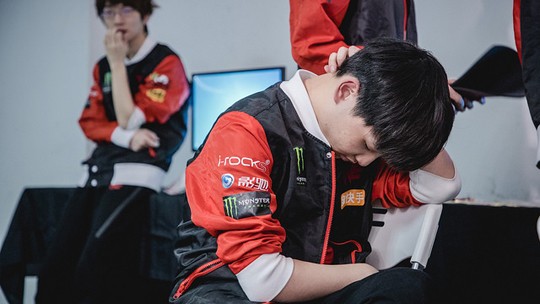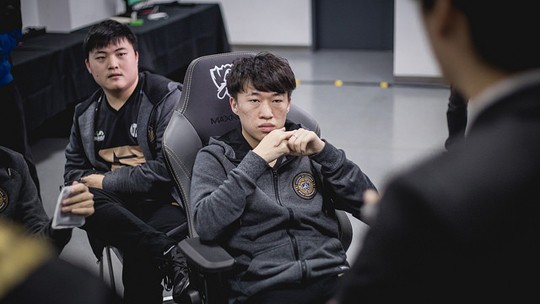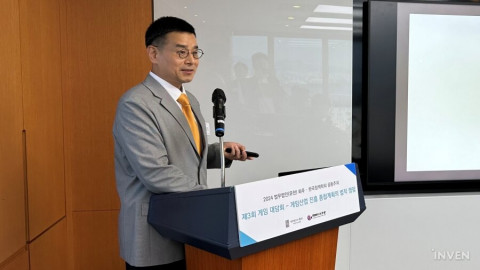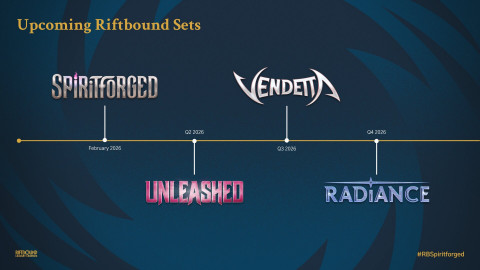
Chinese teams have failed to take down the Koreans, and concluded their journey in LoL World Championship that took place in their own country. As China is known to be the land of ADC’s, Chinese teams’ success was much expected – especially with the Ardent Censer meta strengthening their hands. It was expected that things will be different this time.
Teams EDG-RNG-WE did actually show much improved performances during the meta. They turned Galio into a big-time champion, and brought the once-neglected Caitlyn back into the rift. Their approaches to the game surely inspired not only Korean teams but also teams from many other regions.
Overall, Chinese teams did make much better results – besides EDG, both RNG and WE went as far as the semi finals. However, both teams had to conclude their journey as they were defeated by SKT T1 and Samsung Galaxy. Why, then, did they fail to overcome the Korean teams in Best-of-5 matches once again? Among several reasons proposed, Chinese insiders picked the difference in culture and system to be the most prominent reason.
¤ Basics are Good. Practice-wise, Not so Much….?
Drastic Difference in Practice Styles between Korean and Chinese Teams.
Firstly, the most obvious difference lies in the amount of practice each side goes through. Chinese teams’ practice schedules are much more lenient compared to Koreans. While they both scrim twice a day, Chinese teams play only two games. Depending upon the situation they take both weekend days off, meaning they only practice through 20 games a week. Because Korean teams scrim with 3-game system, they play at least 10 more games each week. The gap further widens because Korean players almost never take two consecutive days off.

Of course, not every team runs by such schedule. Yet there is another difference from Korea besides it. Korean players adjust their schedule in order to match their rest and practice times. Since early season they discuss and adjust the schedule with each other, and naturally their daily schedules synchronize.
There are many Chinese users in Korean Server’s Solo Queue, and many of these are professional players. Their basic mechanics actually do not differ as much from Korean players. However because they do not practice as a team as much, they have difficulties dealing with various unexpected situations in game. They often cannot carry out the late game phase together.
Because of their low concentration, Chinese teams sometimes collapse on their own if they cannot score a win early enough in Best-of-5 games. RNG, who played against SKT in semifinals, was not different. A representative analyzed that the reason behind the defeat was “lack of practice.” He also added that the weakness at least was not as obvious because the team had the best player in China for each position.
In order for China to overcome this losing streak against Korea, there has to be a change in their practice styles. As Korean teams have been World champions every year since 2013 they serve as the perfect role model. However, every coaching staff in Chinese teams agree that following Korean teams’ path is “simply impossible.”
¤ Difference in Culture Cannot be Helped
Pro-gaming Teams are Like Mini Politics.
The reason behind it is that team owners have a great power over how the team runs. Most Chinese players refuse to take criticisms from their coaching staffs. With individualism so deeply rooted in the culture, the players either take the comments personally or fail to understand them. Consequences follow when the coaching staffs ignore the difference and coach the team similar to how Korean coaching staffs do.

Because of this, the coaching staffs often are hesitant to comment on anything. However, the team owner can intervene and manipulate the team composition and/or usage of players as preferred. Players are able to speak directly with the owner, who is the one that pays their salary, and thus do not share their thoughts so much with the coaching staff. If trouble rises between the two sides, it is often the owner that come in to solve the problem.
It is because of such cultural difference that the system change seems impossible. Korean players are directed both inside and outside of the game by the coaching staff. Many even get along well with the staffs. Chinese players are so much more individualized. They do not really care what their teammates do or where they go. In extreme cases they do not even know each other’s names and/or ages.
The fact that the players are not close enough would not have led to the defeat on its own. However, it does determine how players figure their ways out of conflicts within the team. They often turn one’s back on the entire team or take the conflict into physical fights and make it impossible for the team to go back to normal. In a past Worlds, a Chinese player refused to participate in practices due to a conflict with a teammate. Another player took personal conflict with a teammate to champion picks in official match and caused a major delay in the game. The teams, with no surprise, lost the game that followed such incidents.
A coaching staff from a Chinese team shared his opinion about how “the players report to the owners if we ever use strong tone to direct them, so the coaching staff doesn’t have much authority. Many of us don’t have much to do, and all they can do is stay conscious of the owners so they do not lose their job.” Sometimes even translators take advantage of it. When the translators and coaching staff have conflicts, the translators would intentionally add attitudes to translations and worsen the relationship among the team. Because Chinese teams rarely have an official translator on the team, many misunderstandings rise over the process of translation.
Even the most elite coaching staff are subject to being dis-employed due to relationship issues with others, etc. It is impossible for the teams to win against Korean teams in such harsh conditions. Coaching staffs are scapegoated in a politics-like pro-gaming field, and no change has been made to fix it.
¤ They Want to Be Gamers, but Not Professionals
Wins are Important, but Fame is Even More so.
While the coaching staffs are on edge, Chinese players already have their next plan figured out. A Chinese gaming representative pointed out that “personal streamers earn so much more money than do professional players, so they do not linger on the ‘professional’ title.” Once one’s high up in leaderboard in the country, millions of fans watch the streamer’s videos. It is said to be wiser to focus on raising one’s name value than to actually score well on big tournaments.

A former Chinese professional gamer who had made good scores in Worlds before have told the press, “my monthly pay back then was only about $3K. After I left the team I started streaming and received incomparably more money and attention. It was enough for not only traveling to Korea back and forth but also any other international travels.” He shared that he is seriously considering retiring as a professional gamer.
The problem is, nobody realizes what is wrong with such system. The team owners ask the players to sign a personal contract for streaming even if he retires as a professional. They do this so that the team and the player make money together. The team thinks raising players’ name values is as important as making good results in tournaments. Sometimes players even have to put the pre-scheduled practice down to participate in filming ads as directed by the owner.
As the team’s operations are prioritized before the players’ performances, Chinese players are oblivious of the importance of scrims and practice. A coaching staff shared an incident in which “In the middle of a long-planned practice against the Korean teams after several requests, a player rage quit and shut the computer off because the game didn’t go as he wanted it to.” The coaches would always apologize for “China’s glitchy internet connection”, but the Korean teams helping the practice “know the actual reason behind it, and feels very sorry.”
In the end, the Chinese teams finally came up with a solution of recruiting coaching staffs with career records. Sung-Young Yoon of WE (LCK, Worlds Champion), Gwan-Hyoung Lee of RNG (LCK Champion), and No-Chul Jung of EDG (LCK Champion) are the results. However despite the help from Korean coaching staffs, the teams failed to win against LCK teams and become World Champions. They must look into the basic problems and figure out the solutions through discussion among the owners and other officials.
Sort by:
Comments :0







